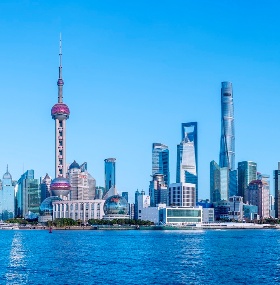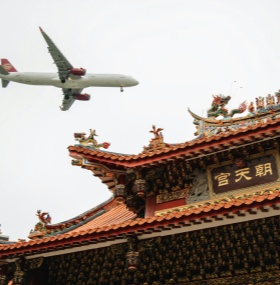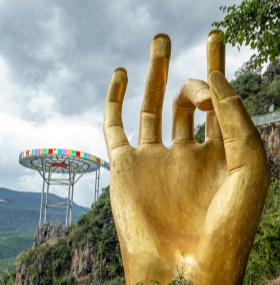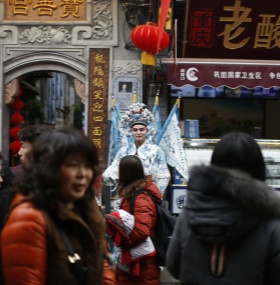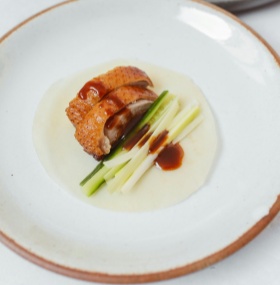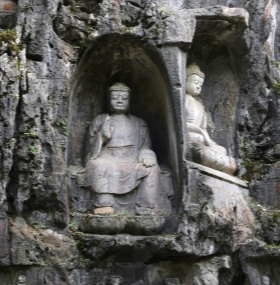Planning a trip to China can be an exciting experience, but managing your travel budget wisely is essential to ensure that you get the most out of your adventure without breaking the bank. From affordable accommodation and transportation options to cost-effective dining and attractions, there are plenty of ways to save money while enjoying everything this vibrant country has to offer. Here’s a comprehensive guide on how to manage your budget for a trip to China, ensuring you make the most of your experience at a reasonable cost.
Kindly feel free to contact us for more recommendation for your China tour.
1. Plan Your Budget in Advance
Before setting foot in China, it’s important to plan your travel budget carefully. Estimate the total cost of your trip, factoring in flights, accommodation, food, transportation, and activities. Having a clear budget will allow you to make informed decisions throughout your trip. Here’s what you should consider:
Flights: Airfares to China can be one of the most significant expenses. Booking in advance and being flexible with your travel dates can help you find cheaper options. Look for special offers and compare flight prices on different platforms to ensure you get the best deal.
Visa: Don't forget to account for the cost of obtaining a visa for China, if required. Be sure to check the latest visa requirements and application fees well in advance.
2. Affordable Accommodation Choices
Accommodation can take up a large portion of your budget, but China offers a wide range of options that cater to different price ranges:
Budget Hotels: China has a large number of budget-friendly hotel chains, such as 7 Days Inn, Jinjiang Inn, and GreenTree Inn, that offer basic, clean, and comfortable rooms at affordable rates.
Hostels: For solo travelers or those on a tight budget, hostels are a great option. They provide affordable lodging and a chance to meet other travelers. Check out international chains like Hostelworld or HI (Hostelling International) to find great deals.
Airbnb: Renting an apartment or room through Airbnb can be a budget-friendly choice, especially for longer stays. It also gives you the flexibility to cook your meals and save on dining expenses.
Guesthouses: Traditional Chinese guesthouses often offer lower prices and more authentic local experiences. They’re a perfect choice for travelers seeking a quieter, more relaxed environment.
3. Budget-Friendly Transportation Options
Getting around China is easy and affordable, especially if you take advantage of public transportation and other budget options:
Public Transportation: China’s major cities, such as Beijing, Shanghai, and Guangzhou, have extensive subway systems that are both cheap and efficient. For instance, a single subway ride typically costs only 2-4 RMB. Buy a transport card like the Yikatong in Beijing or Shanghai Jiaotong Card for added convenience and savings.
Trains: The high-speed train network in China is one of the best in the world. For long-distance travel, high-speed trains (G and D trains) are not only fast but also affordable. For shorter distances, regular trains (K and T trains) are even cheaper.
Buses: Buses are an economical option for getting around, especially in smaller cities or rural areas. They are also a great way to explore local neighborhoods. Most buses in China are cheap, with fares starting at around 1-3 RMB.
Taxis & Ride-Hailing: Taxis in China are affordable, but ride-hailing services like DiDi (China's version of Uber) offer even better rates and convenience. Just make sure you’re aware of surge pricing during busy periods.
4. Eating on a Budget
Chinese cuisine is not only delicious but also incredibly affordable, especially if you stick to local food and street vendors:
Street Food: One of the best ways to experience authentic Chinese cuisine without spending much is by enjoying street food. You can find a wide range of inexpensive options, such as dumplings, baozi (steamed buns), jiaozi, and skewers from street vendors. These can cost as little as 5-20 RMB per dish.
Local Restaurants: Instead of dining at high-end or touristy restaurants, head to local eateries where you can sample authentic and affordable Cantonese, Sichuan, or Northern Chinese cuisine. For around 30-50 RMB, you can enjoy a filling meal with rice, vegetables, and meat.
Food Markets: Visit food markets to try a variety of inexpensive and freshly prepared dishes. These markets are often bustling with activity and offer great value for money. Famous food streets such as Wangfujing in Beijing or Shilin Night Market in Taipei are great places to explore.
Buffets & Set Menus: Some restaurants, especially in tourist areas, offer buffet-style meals or set menus at reasonable prices. This can be a great way to fill up while trying a variety of dishes for a fixed price.
5. Free or Low-Cost Attractions
China has a wealth of cultural, natural, and historical attractions, many of which are either free or have a very low entry fee:
Temples & Parks: Many parks and temples in China have minimal entrance fees or are completely free to visit. For example, Temple of Heaven in Beijing offers a relatively low admission price, and parks like Hangzhou’s West Lake are free to explore.
Museums: Some museums in China, including the NationalMuseumofChina in Beijing and the Shanghai Museum, offer free or affordable admission. Visiting museums is an excellent way to learn about the country's rich history without spending much.
Nature & Scenic Spots: Explore China’s stunning natural beauty without breaking your budget. Yangshuo in Guilin offers incredible limestone mountain views and rural landscapes, while Jiuzhaigou Valley (a UNESCO World Heritage site) offers breathtaking scenery at a reasonable price.
Walking Tours: Most cities in China have free walking tours or self-guided walking routes that can help you explore the city’s highlights at your own pace. Many cities also offer free public events or festivals that are worth checking out.
Recomended Itinerary:
6. Travel During Off-Peak Times
Traveling during China’s off-peak seasons (typically from November to early December or from March to June) can help you save significantly. Airfares, accommodation, and attraction tickets are generally cheaper during these times, and you’ll avoid the crowds of Chinese holidays like Golden Week (October) or Chinese New Year (January/February).
7. Stick to a Daily Spending Limit
To ensure you stay within your budget, it’s helpful to set a daily spending limit. Track your expenses throughout the day, including meals, transportation, and activities. Use mobile apps like WeChat Pay or Alipay, which are widely accepted throughout China, to keep track of your spending in real time. These apps also offer discounts and deals, which can help save money on everyday expenses.
Related Posts
Create Your Customized Trip
Take about 2 minutes to fill the form to tell us how you like to travel, and get a reply within 1 working day.

